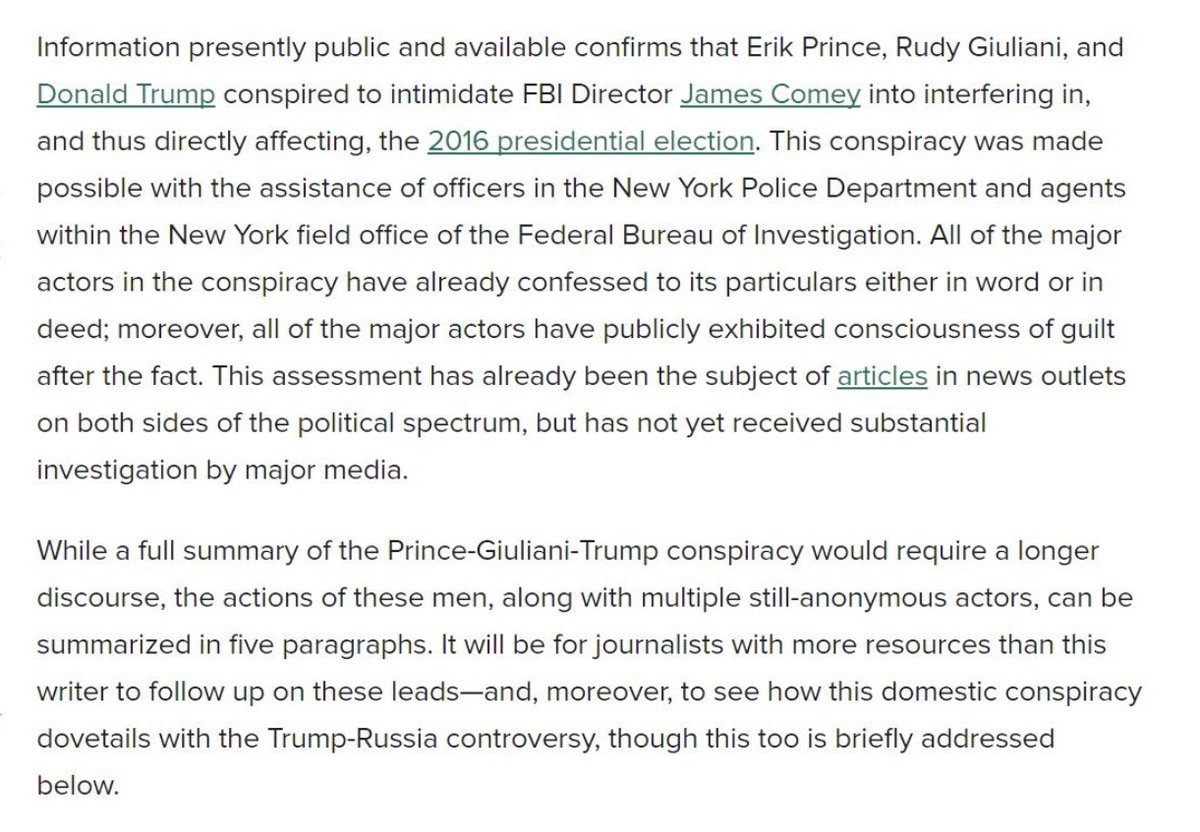a. REASONABLE SUSPICION
b. PROBABLE CAUSE
c. PREPONDERANCE OF THE EVIDENCE
d. CLEAR AND CONVINCING
e. BEYOND A REASONABLE DOUBT
TOP REPUBLICAN SENATOR INVESTIGATING COLLUSION SAYS EVIDENCE OF COLLUSION EXISTS, PERMANENTLY ENDING TRUMP AND THE REPUBLICANS' "NO EVIDENCE OF COLLUSION" MANTRA
Instead we got: "Burr says no evidence of collusion."
What's the *appropriate* standard of proof to be met when the allegation is that a president criminally betrayed his country and is a national security threat and the remedy requested is removal from office?
That endangers America.




